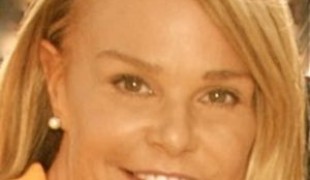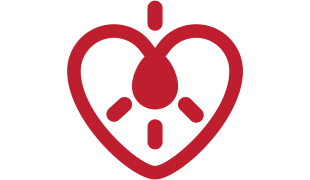- 6046
- 482
- 13
- 13
- 0
- Help Ukraine
Über die Lösung
Karel wurde immer gefragt, um Hilfe zu schließen und sein Hemd öffnen. Das Leiden von Alzheimer, war sein Zustand immer schlimmer, als er älter wurde, und seine Hände waren immer mehr zu zittern.
Trotz seiner zunehmenden körperlichen Einschränkungen, der Patient, der über 80 Jahre alt ist, hat einen klaren Verstand.
So hatte Karel die Idee der Verwendung von Velcro, die auch eine billige Lösung, ihm mehr unabhängig sein zu helfen, wenn er sich kleidet. Er bat seine Tochter Ria alle seine Kleidung Buttons mit Klettverschluss zu ersetzen.
Jetzt ist er in der Lage sein „Tasten“ ohne Hilfe zu schließen, die Positionierung der Enden der Klett eine oben auf der anderen Seite.
Es war auch eine Lösung, die nicht viel Zeit in Anspruch nehmen haben zu implementieren. Karel erhalten sehr gutes Feedback vom Pflegepersonal.
Übernommen aus: http://bit.ly/2nnpNmn
Diese Lösung enthält keinen Hinweis weder auf die Verwendung von Arzneimitteln, Chemikalien oder biologische Stoffe (einschließlich Lebensmitteln) noch auf invasive Geräte, anstößige, kommerzielle oder inhärent gefährliche Inhalte. Diese Lösung wurde nicht medizinisch validiert. Vorsicht! Wenn Sie irgendwelche Zweifel haben, wenden Sie sich bitte an einen Arzt.
DISCLAIMER: This story was written by someone who is not the author of the solution, therefore please be advised that, although it was written with the utmost respect for the innovation and the innovator, there can be some incorrect statements. If you find any errors please contact the patient Innovation team via info@patient-innovation.com
-
-
486
-
0
-
6761

CAPR-Style - Adaptive Kleidung für Menschen mit Behinderungen
CAREGIVING
(SELF)-CARE: DRESSING: Dressing independently.
Incontinence
Cerebral Palsy
Cervical spinal cord injury/Tetraplegia
Body-Worn solutions (Clothing, accessories, shoes, sensors...)
Strategy/Tip
Promoting self-management
Managing Neurological Disorders
Promoting inclusivity and social integration
Recovering from Traumatic Injuries
Preventing (Vaccination, Protection, Falls, Research/Mapping)
Caregiving Support
Medical Genetics
Neurology
Pediatrics
Rheumatology
United Kingdom
-
-
-
274
-
0
-
3251

Mom schafft Modelinie für Autisten
(SELF)-CARE: DRESSING: Dressing independently.
Autism
Body-Worn solutions (Clothing, accessories, shoes, sensors...)
Anxiety
Difficulty concentrating or making decisions
Irritability or anger outbursts
Restlessness or feeling slowed down
Panic attacks
Difficulty controlling impulses
Racing thoughts
Feelings of guilt or worthlessness
Obsessive thoughts or compulsive behaviors
Hallucinations (perceiving things that aren't there)
Changes in appetite or weight
Promoting self-management
Managing Neurological Disorders
Promoting inclusivity and social integration
To improve Treatment/Therapy
Preventing (Vaccination, Protection, Falls, Research/Mapping)
Caregiving Support
Child and Adolescent Psychiatry
General and Family Medicine
Neurology
Pediatrics
United States
-
-
-
568
-
0
-
7654

Hose mit Reißverschlüssen auf beiden Seiten für Patienten, die sich in der Öffentlichkeit standhalten müssen.
CAREGIVING
(SELF)-CARE: DRESSING: Dressing independently.
Amyotrophic Lateral Sclerosis
Strategy/Tip
Body-Worn solutions (Clothing, accessories, shoes, sensors...)
Tremors
Muscle cramps or spasms
Stiffness or rigidity (difficulty moving)
Muscle weakness
Trouble with fine motor skills (e.g., writing, buttoning clothes)
Sleep disturbances
Numbness or tingling in the extremities
Restoring mobility
Managing pain
Promoting self-management
Managing Neurological Disorders
Promoting inclusivity and social integration
Preventing (Vaccination, Protection, Falls, Research/Mapping)
Caregiving Support
General and Family Medicine
Medical Genetics
Medical Oncology
Neurology
Orthopedics
Physical Medicine and Rehabilitation
Rheumatology
United States
-
 de
de